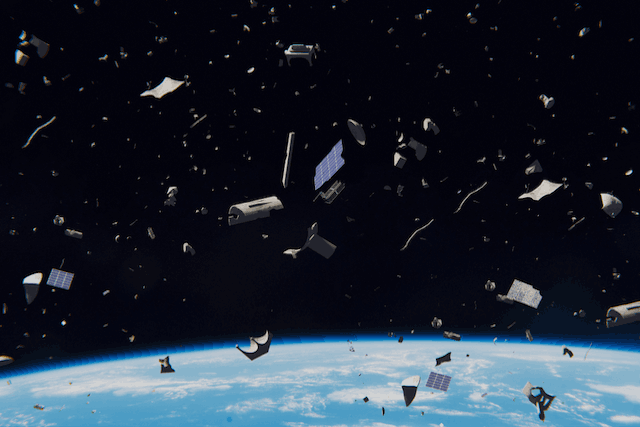Development cooperation and humanitarian affairs minister Paulette Lenert (LSAP) co-signed the agreement with United Nations Office for Outer Space Affairs director Simonetta Di Pippo to launch the Space Law for New Space Actors project during the first day of the 2019 Newspace Europe conference hosted in Luxembourg on Wednesday.
Di Pippo explained that the project takes a bottom up approach, offering signatory UN member states tailored capacity building to draft national space legislation and space policies that are in-line with international space law and promote long-term sustainability of activities in space.
“This will help nations to muster national regulatory framework and to ensure responsible behaviour in space activities,” Di Pippo said during her keynote speech on Wednesday, adding that responsible behaviour in outer space was “key for unlocking the potential of the sector.”
There are already some five UN treaties related to space activities and Di Pippo explained that in June the committee for the peaceful use of outer space, which currently boasts 95 members out of 193 member states, approved the preamble of 21 guideline for long-term sustainability in outer space activities, related to areas including space debris and defence, among others. She explained that another working group is also looking at the long-term sustainability guidelines.

UNOOSA director Simonetta Di Pippo with development cooperation and humanitarian affairs minister Paulette Lenert are pictured in Luxembourg on 13 November signing the agreement to launch the Space Law for New Space Actors project. Photo: Delano
After Luxembourg, Di Pippo said that there had already been interest from Peru and Thailand in joining the project and Chile was close to signing an agreement.
“They will contribute with smaller amounts of money because it will be just one customised activity for each of these countries, at least for the time being,” she said, adding: “Luxembourg is really the foundation of the project, in a way.”
Lenert said her department would closely examine feedback from the project in the coming two years. “I’m conscious it’s a trust-based donation because we believe in the impact,” she said.
Di Pippo acknowledged that the project was just one way of ensuring responsible behaviour in space. Luxembourg built on the space activities begun with the creation of satellite operator SES in 1985 with the launch of the Space Resources Initiative in 2016. Aimed at developing a new economic sector of commercial space or newspace activities in the country, the strategy has been further strengthened with the passing of a legal framework clarifying the ownership rights of space resources, the launch of the Luxembourg Space Agency in 2018, and in 2019 the creation of a space resources research centre, in partnership with the European Space Agency.
Earlier on Wednesday morning, economy minister Etienne Schneider (LSAP) had said that the government would launch a venture capital fund, a public private partnership between the Luxembourg government, as investor, and private investors. “This fund is meant to invest in newspace startups, A and B series,” he said.
